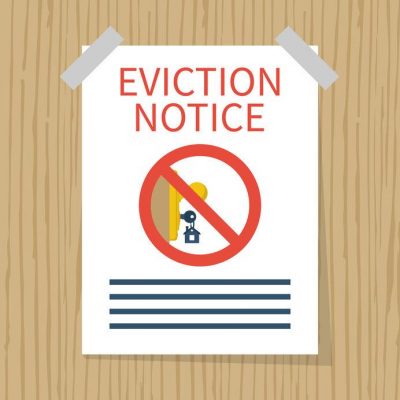 As everyone knows by now, COVID-19 dramatically impacted (and continues to impact) day-to-day business for community associations. Part of the initial fallout was a moratorium on foreclosure and eviction proceedings. Although these are handled at the county level throughout Georgia, the Statewide Judicial Emergency-which has been extended numerous times-temporarily put things on hold for every jurisdiction. It was not until the end of this summer, however, that some restrictions were lifted and counties could decide to resume with foreclosures and/or evictions. The purpose of this article is to provide a status update on these proceedings in Cherokee, Cobb, DeKalb, Forsyth, Fulton, and Gwinnett.
As everyone knows by now, COVID-19 dramatically impacted (and continues to impact) day-to-day business for community associations. Part of the initial fallout was a moratorium on foreclosure and eviction proceedings. Although these are handled at the county level throughout Georgia, the Statewide Judicial Emergency-which has been extended numerous times-temporarily put things on hold for every jurisdiction. It was not until the end of this summer, however, that some restrictions were lifted and counties could decide to resume with foreclosures and/or evictions. The purpose of this article is to provide a status update on these proceedings in Cherokee, Cobb, DeKalb, Forsyth, Fulton, and Gwinnett.
Foreclosures
There is currently no Statewide order preventing judgment foreclosures from taking place. The issue, however, is that Georgia law essentially requires them to occur in-person on the courthouse steps. It is presumably for this reason that many counties have decided not to resume their foreclosure sales. Of the Metro-Atlanta counties listed above, only Cherokee, Forsyth and Gwinnett appear to be moving forward with them in November or December of this year. Fulton has announced that its foreclosure sales will resume in 2021, but Cobb and DeKalb are still on hold indefinitely at this time.
Evictions
The Georgia magistrate courts stopped dispossessory actions as a result of the Statewide Judicial Emergency. Likewise, the respective marshal and/or sheriff’s departments were not executing writs of possession. Once the restrictions were lifted towards the end of the summer, however, many counties resumed their eviction proceedings.
As of October 30, 2020, the magistrate courts for Cherokee, Cobb, DeKalb, Forsyth, Fulton, and Gwinnett are allowing dispossessory actions to proceed. However, DeKalb is the only county that is not executing writs of possession at this time. This means that homeowners can currently evict tenants from a property in all of the foregoing counties except for DeKalb. DeKalb cited the Federal Agency Order issued by the Centers for Disease Control and Prevention (“CDC”) as the reason for not executing writs of possession at this time.
On September 4, 2020, the CDC issued a Federal Agency Order entitled Temporary Halt in Residential Evictions to Prevent the Further Spread of COVID-19 (“CDC Order”). In sum, the CDC Order states that landlords “shall not evict any covered person from any residential property…during the effective period of the Order.” At the moment, the CDC Order runs through December 31, 2020.
The CDC Order does not preclude all evictions from taking place. Instead, it precludes evictions against a “covered person,” which is essentially defined as any residential tenant, lessee or resident that provides a “Declaration” under penalty of perjury directly to their landlord indicating that:
(1) The individual has used best efforts to obtain all available government assistance for rent or housing;
(2) The individual either (i) expects to earn no more than $99,000 in annual income for Calendar Year 2020 (or no more than $198,000 if filing a joint tax return), (ii) was not required to report any income in 2019 to the U.S. Internal Revenue Service, or (iii) received Economic Impact Payment (stimulus check) pursuant to Section 2201 of the CARES Act;
(3) The individual is unable to pay the full rent or make a full housing payment due to substantial loss of household income, loss of compensable hours or work or wages, a lay-off, or extraordinary out-of-pocket medical expenses;
(4) The individual is using best efforts to make timely partial payments that are as close to the full payment as the individual’s circumstances may permit, taking into account other nondiscretionary expenses; and
(5) Eviction would likely render the individual homeless-or force the individual to move into and live in close quarters in a new congregate or shared living setting-because the individual has no other available housing options.
Most community associations do not have the direct authority to evict a homeowner’s tenant. But if a community association is authorized (per its governing documents) to demand that a homeowner carry out an eviction, please be aware that the CDC Order may prevent the homeowner from doing so. In other words, if a tenant provides his or her landlord with a valid “Declaration” in accordance with the CDC Order, all Georgia counties would be blocked from issuing a writ of possession.
